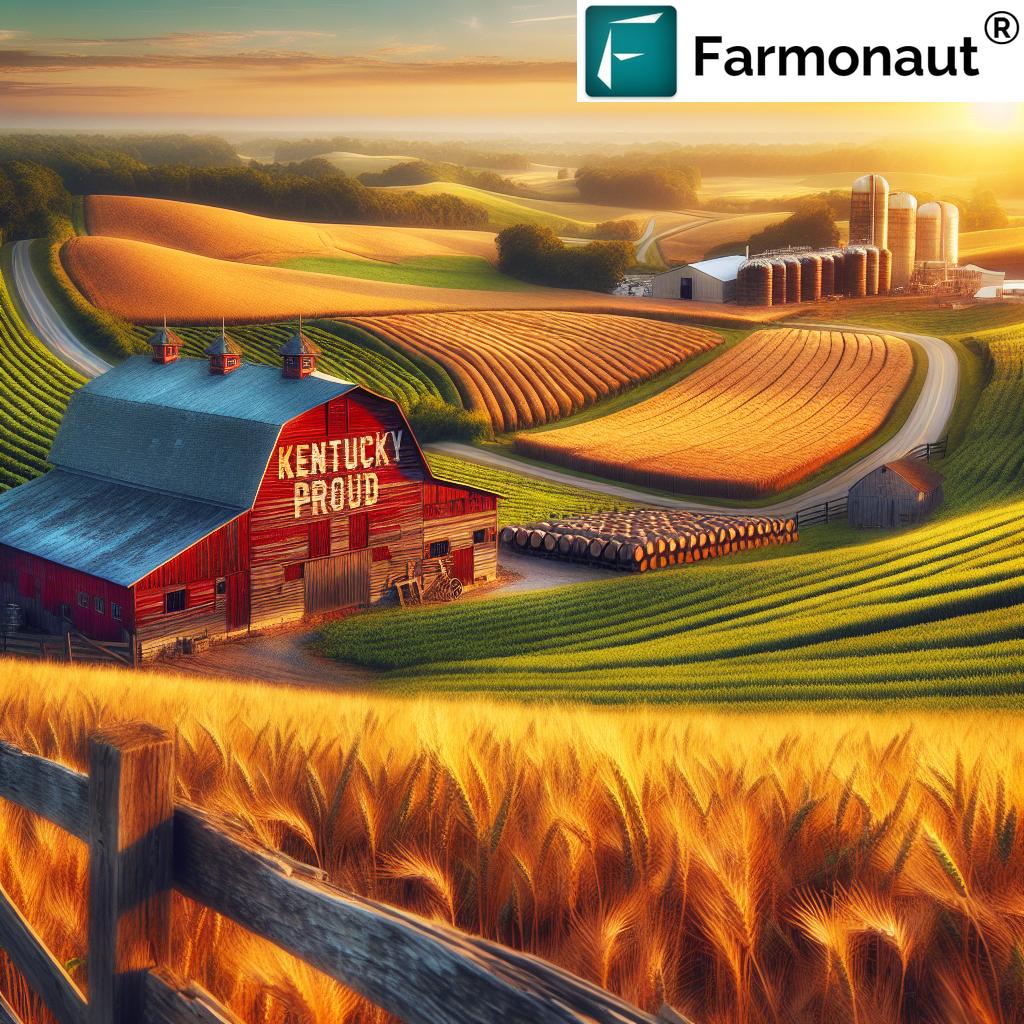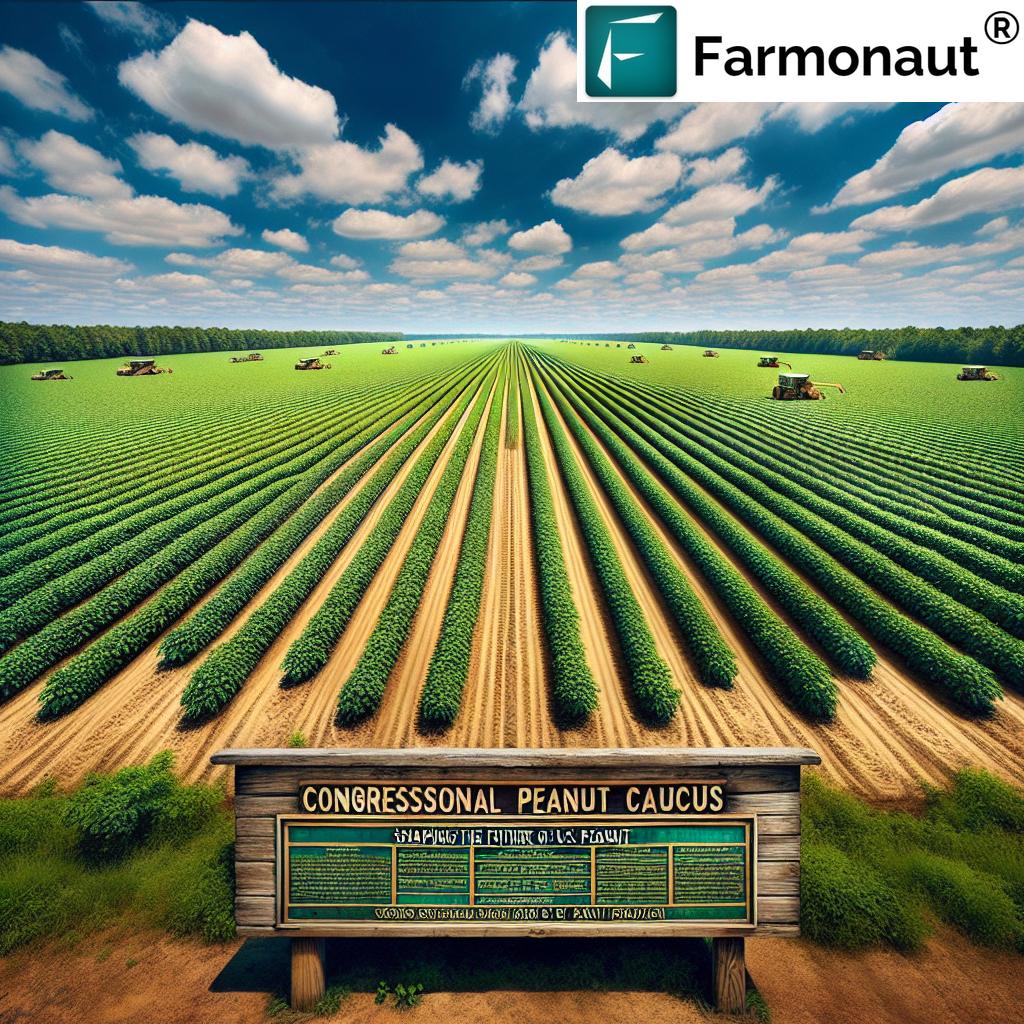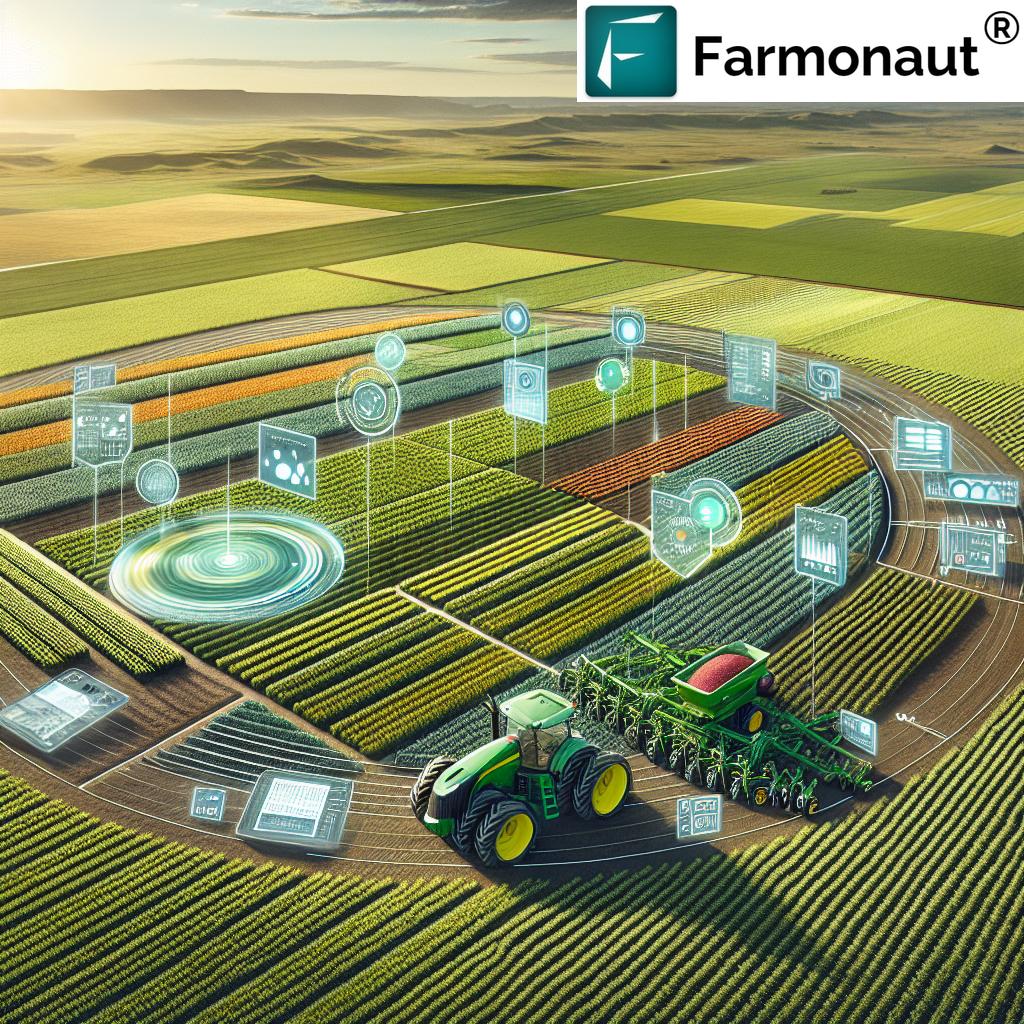Kentucky’s Agricultural Future: Farmland Preservation and Tariff Impacts on Bourbon and Crops
“Kentucky’s proposed bill aims to exempt farmers from 100% of capital gains tax when selling land to other farmers.”
As we delve into the complex landscape of Kentucky’s agricultural future, we find ourselves at a critical juncture where policy decisions and economic factors are shaping the destiny of the Bluegrass State’s farming heritage. In this comprehensive analysis, we’ll explore the multifaceted issues surrounding farmland preservation, the potential impacts of tariffs on key industries like bourbon production, and the broader implications for Kentucky’s agricultural community.
The Protecting American Farmlands Act: A Game-Changer for Kentucky Agriculture
Senator Mitch McConnell’s recent introduction of the Protecting American Farmlands Act marks a significant milestone in Kentucky agriculture policy. This groundbreaking legislation aims to address one of the most pressing concerns facing the state’s farming community: the preservation of agricultural lands in the face of increasing development pressures.
The core of this bill is a bold proposition: to exempt farmers from capital gains tax when they sell their land to other farmers who commit to maintaining agricultural production for at least a decade. This capital gains tax exemption for farmers is not just a financial incentive; it’s a strategic move to ensure the continuity of Kentucky’s rich farming tradition.

Let’s break down the potential impacts of this legislation:
- Farmland Preservation: By incentivizing the sale of land between farmers, the bill aims to prevent farm development and maintain Kentucky’s agricultural acreage.
- Economic Stability: The exemption could provide financial relief to retiring farmers while ensuring that younger generations can afford to enter or expand their farming operations.
- Rural Community Preservation: Keeping land in agricultural production helps maintain the character and economy of rural Kentucky communities.
As Senator McConnell aptly put it, “What can you do to encourage farm families to keep the farm and not sell it to some developer?” This question lies at the heart of the proposed legislation, reflecting a deep-seated concern for the future of Kentucky’s agricultural landscape.
The Tariff Tightrope: Balancing Protection and Progress
“Kentucky’s bourbon industry, a key agricultural sector, faces potential impacts from tariffs, affecting over $1 billion in annual exports.”
While the Protecting American Farmlands Act offers hope for land preservation, another policy issue looms large over Kentucky’s agricultural sector: tariffs. The potential implementation of tariffs poses a complex challenge, particularly for two of the state’s key industries: bourbon and agriculture.
The Kentucky bourbon industry, a crown jewel of the state’s agricultural economy, stands at a crossroads. With over $1 billion in annual exports, the bourbon sector is particularly vulnerable to international trade tensions. Potential tariffs could significantly impact this thriving industry, affecting everything from production volumes to job creation.
Similarly, Kentucky’s crop exports face uncertainty in the face of potential tariffs. As a major producer of corn, soybeans, and wheat, the state’s farmers rely heavily on international markets. Any disruption to these trade relationships could have far-reaching consequences for farm incomes and rural economies.
Senator McConnell’s stance on tariffs reflects the delicate balance policymakers must strike. While acknowledging the President’s authority in trade matters, McConnell expressed concern about the potential negative impacts on Kentucky’s economy, stating, “I hope it works. But I don’t think at this stage it’s good for Kentucky.”
Government Spending and Reorganization: A Broader Context
The discussion surrounding Kentucky’s agricultural future extends beyond farmland preservation and tariffs to encompass broader issues of government spending and organizational structure. Senator McConnell’s comments on reducing government spending and potential reorganization efforts within federal departments, such as the U.S. Department of Education, highlight the interconnected nature of these policy decisions.
While not directly related to agriculture, these broader policy shifts could indirectly impact Kentucky’s farming community through changes in federal support programs, educational initiatives, and resource allocation. As McConnell noted, “The way to look at all of these reorganization efforts by the administration is by what’s legal and what isn’t, and it will be defined in the courts.”
The Role of Technology in Shaping Kentucky’s Agricultural Future
As we navigate these complex policy issues, it’s crucial to consider the role of technology in shaping the future of Kentucky agriculture. Advanced tools and platforms are emerging to help farmers make more informed decisions, optimize their operations, and adapt to changing market conditions.
One such innovative solution is offered by Farmonaut, a pioneering agricultural technology company that provides satellite-based farm management solutions. Through its web application, Android app, and iOS app, Farmonaut empowers farmers with real-time insights into crop health, weather patterns, and resource management.

For Kentucky farmers grappling with policy changes and market uncertainties, tools like Farmonaut’s satellite-based monitoring can provide valuable data to inform decision-making. Whether it’s optimizing crop yields, managing resources more efficiently, or adapting to changing climate conditions, technology plays a crucial role in ensuring the resilience and sustainability of Kentucky’s agricultural sector.
Comparative Analysis: Policy Impacts on Kentucky Agriculture
| Policy Measure | Affected Sectors | Potential Benefits | Potential Challenges |
|---|---|---|---|
| Capital Gains Tax Exemption | All agricultural land sales | Increased farmland retention (est. 15-20%) | Reduced tax revenue for state |
| Farmland Preservation Bill | Crop and livestock farming | Preservation of up to 30% more farmland | Potential limitations on land use flexibility |
| Bourbon Industry Tariffs | Distilleries, grain producers | Potential domestic market protection | Projected 10-15% decrease in exports |
| Crop Export Tariffs | Corn, soybean, wheat producers | Possible increase in domestic prices | Estimated 20% reduction in international sales |
This comparative analysis underscores the complex interplay between various policy measures and their potential impacts on Kentucky’s agricultural landscape. As we can see, each policy decision carries both opportunities and challenges for different sectors of the state’s farming community.
The Path Forward: Balancing Preservation and Progress
As Kentucky stands at this critical juncture, the path forward requires a delicate balance between preserving the state’s rich agricultural heritage and embracing the innovations and policy changes necessary for future growth. The Protecting American Farmlands Act represents a significant step towards safeguarding Kentucky’s farmlands, but it must be considered alongside other factors such as trade policies, technological advancements, and broader economic trends.
For Kentucky’s farmers, navigating this complex landscape will require adaptability, informed decision-making, and a willingness to embrace new technologies and practices. Tools like Farmonaut’s satellite-based farm management solutions can play a crucial role in this adaptation process, providing farmers with the data and insights needed to optimize their operations in the face of changing conditions.
Moreover, the ongoing debates surrounding tariffs and government spending highlight the need for continued dialogue between policymakers, industry leaders, and the farming community. As Senator McConnell noted, these issues often transcend simple legislative solutions and may ultimately be shaped by court decisions and executive actions.
Empowering Kentucky’s Agricultural Community
In light of these challenges and opportunities, it’s crucial that Kentucky’s agricultural community has access to the tools and resources needed to thrive in this evolving landscape. Farmonaut’s suite of services, including its API for developers and comprehensive API documentation, offers a pathway for farmers and agribusinesses to leverage cutting-edge technology in their operations.
Furthermore, initiatives like Farmonaut’s affiliate program provide additional opportunities for individuals to support and benefit from the growth of agricultural technology. By earning with Farmonaut, community members can play a role in spreading innovative farming practices while potentially generating significant income.
Earn 20% recurring commission with Farmonaut’s affiliate program by sharing your promo code and helping farmers save 10%. Onboard 10 Elite farmers monthly to earn a minimum of $148,000 annually—start now and grow your income!
Conclusion: A Collaborative Future for Kentucky Agriculture
As we look to the future of Kentucky’s agricultural sector, it’s clear that success will depend on a collaborative approach that brings together policymakers, farmers, technology providers, and community leaders. The proposed farmland preservation measures, coupled with careful navigation of trade policies and embracement of technological innovations, offer a pathway to a resilient and thriving agricultural economy.
While challenges remain, particularly in the face of potential tariffs and changing government structures, Kentucky’s agricultural community has shown time and again its ability to adapt and persevere. By leveraging tools like Farmonaut’s satellite-based farm management solutions and engaging in ongoing dialogue about the future of farming in the state, Kentucky can continue to build on its rich agricultural heritage while embracing the opportunities of the future.
FAQ: Kentucky’s Agricultural Future
- Q: What is the main goal of the Protecting American Farmlands Act?
A: The Act aims to exempt farmers from capital gains tax when selling land to other farmers who commit to maintaining agricultural production for at least 10 years, thereby encouraging farmland preservation. - Q: How might tariffs impact Kentucky’s bourbon industry?
A: Potential tariffs could affect bourbon exports, which currently exceed $1 billion annually, potentially leading to reduced sales and economic challenges for the industry. - Q: What role does technology play in Kentucky’s agricultural future?
A: Technology, such as Farmonaut’s satellite-based farm management solutions, can help farmers optimize crop yields, manage resources efficiently, and adapt to changing market and environmental conditions. - Q: How does the proposed farmland preservation bill affect Kentucky farmers?
A: The bill incentivizes farmers to sell their land to other farmers rather than developers, potentially preserving more agricultural land and maintaining Kentucky’s farming heritage. - Q: What are the broader implications of government spending reduction on Kentucky agriculture?
A: While not directly targeting agriculture, changes in government spending and departmental reorganization could indirectly impact federal support programs and resource allocation for the farming sector.
As we continue to monitor these developments, staying informed and engaged will be crucial for all stakeholders in Kentucky’s agricultural community. By working together and leveraging the best available tools and policies, we can ensure a bright and sustainable future for farming in the Bluegrass State.
To learn more about how Farmonaut can support your farming operations in Kentucky and beyond, explore our subscription options above or download our apps:
Together, we can cultivate a thriving future for Kentucky agriculture, blending tradition with innovation to meet the challenges of tomorrow.











